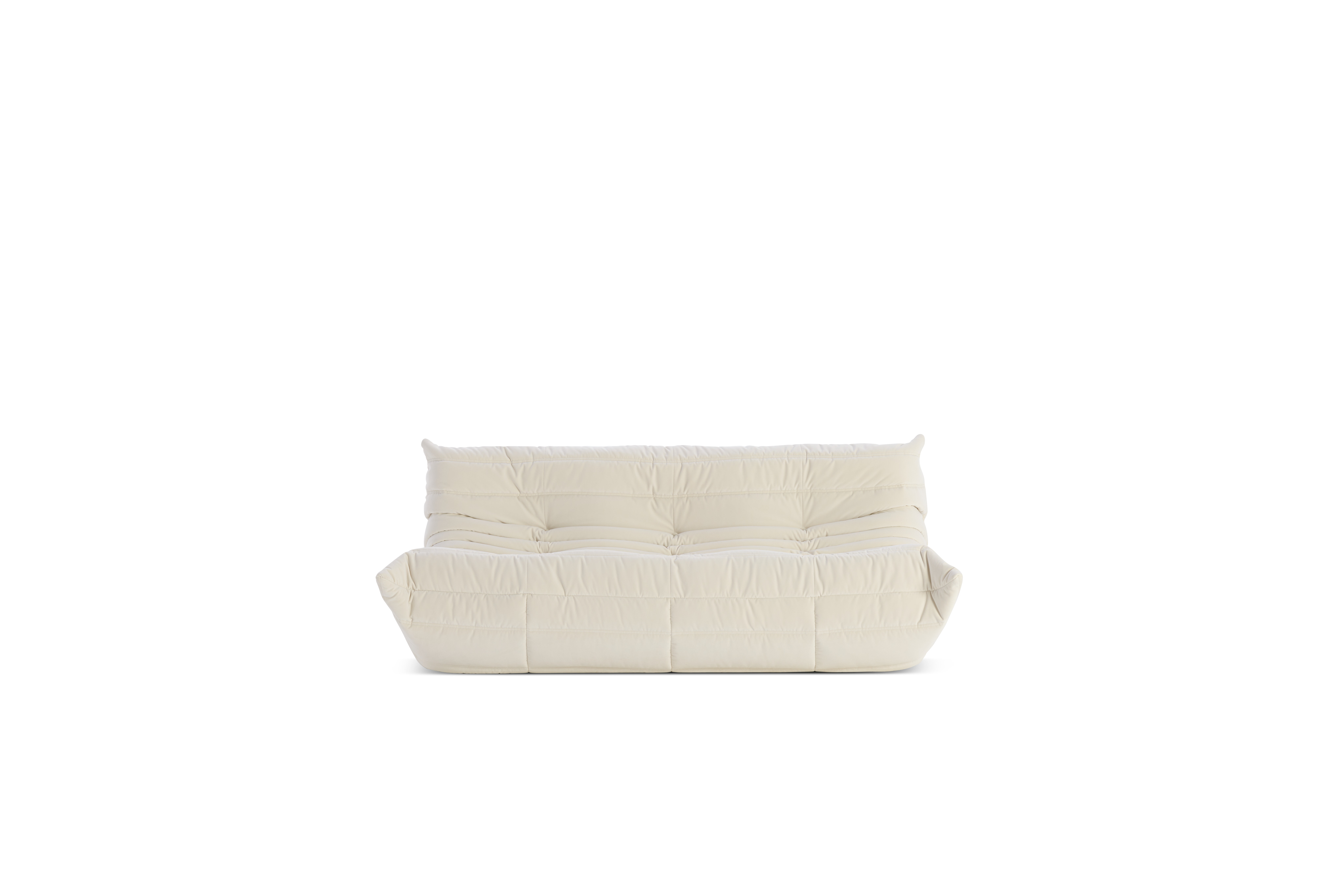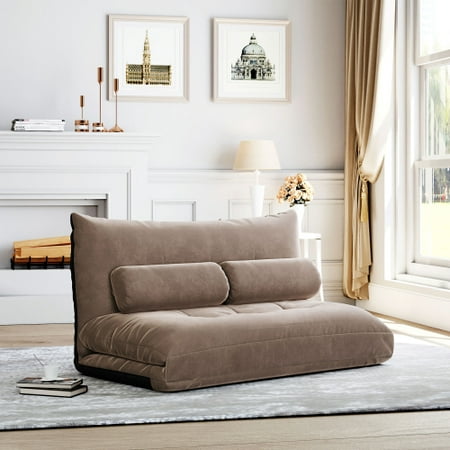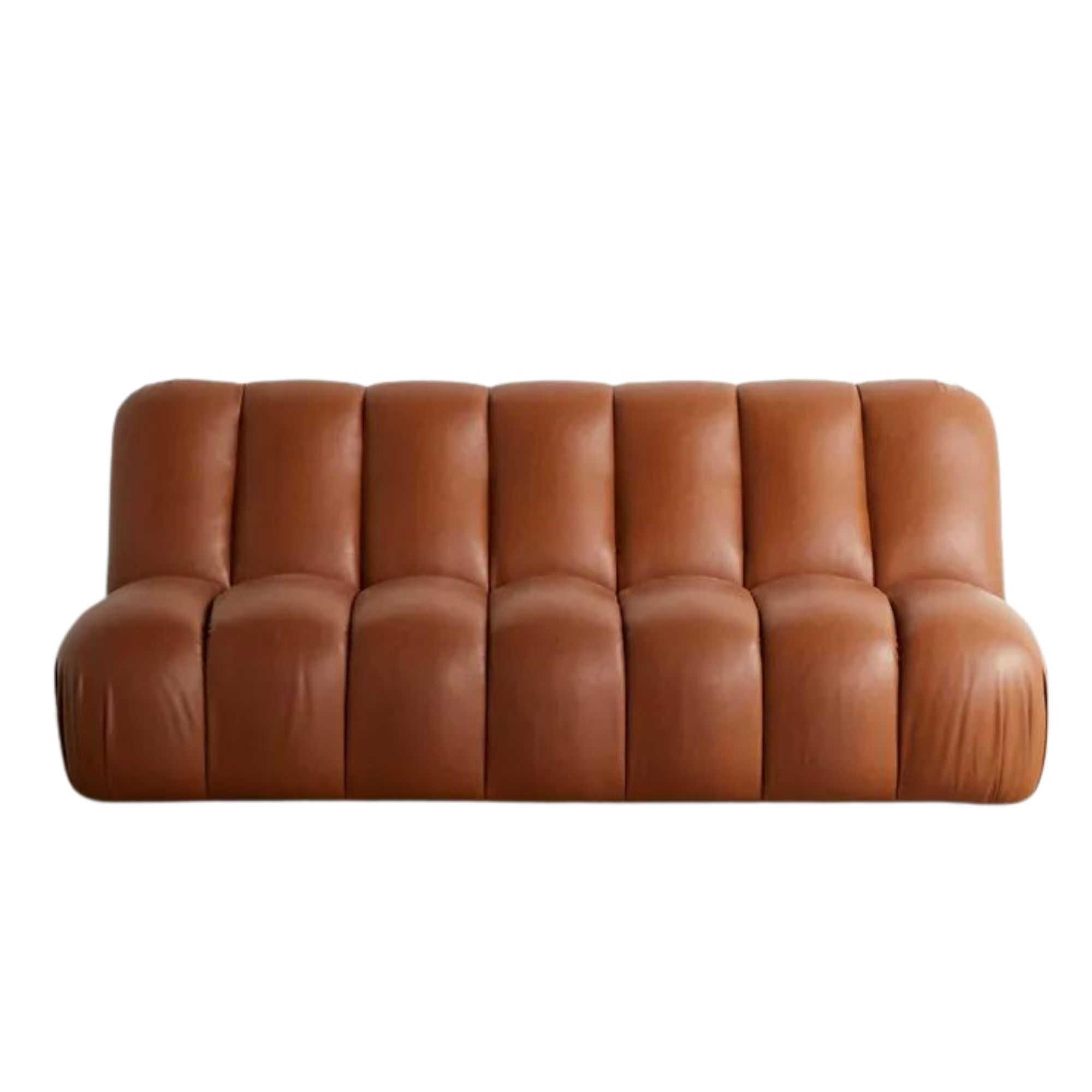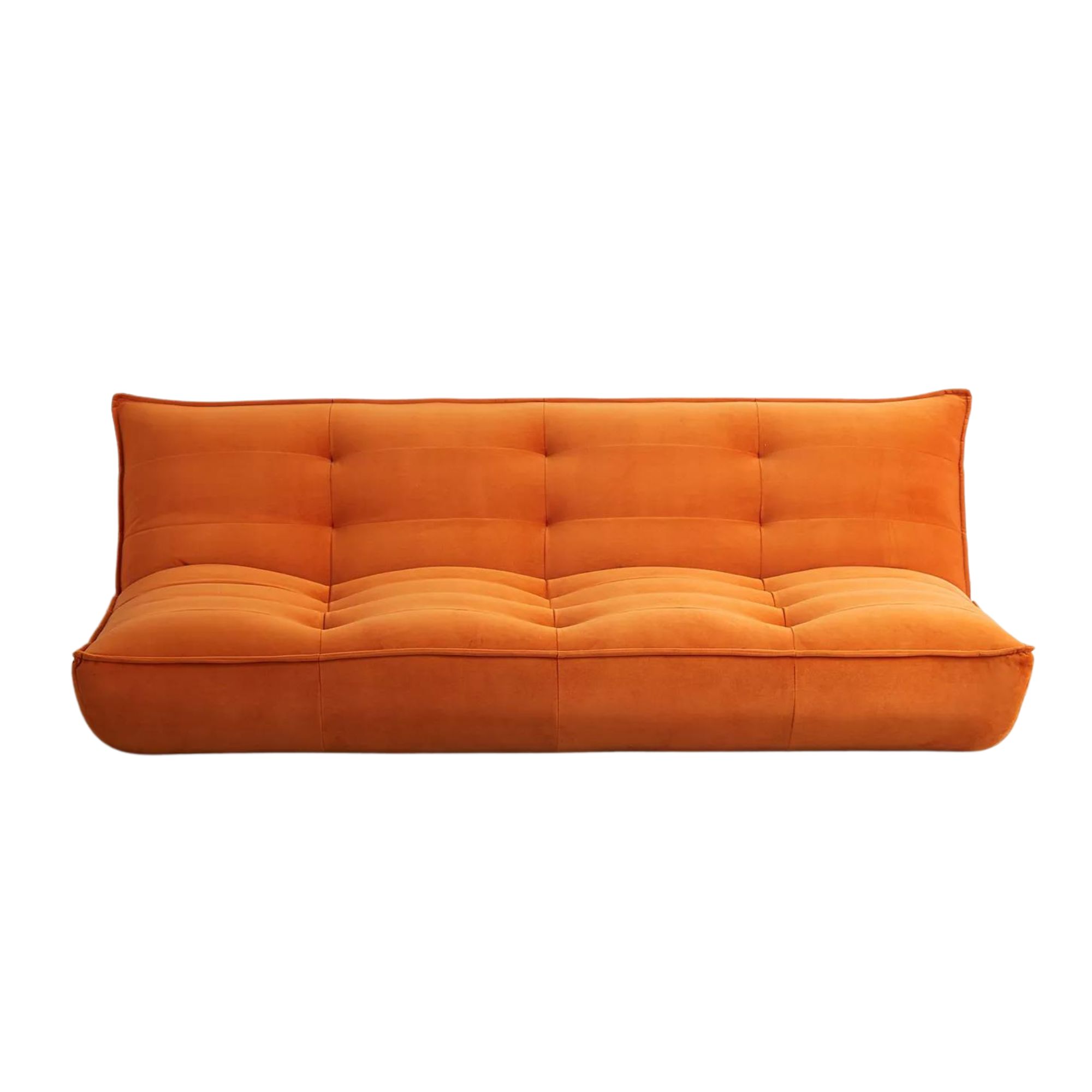'It's One of the World's Most Iconic Couches' — 4 Ways a Togo Sofa Will Change How You Decorate, Say Designers
Is this the world's most recognizable couch? The Togo sofa might be half a century old, but it's still as relevant in design today as it was 50 years ago, say designers

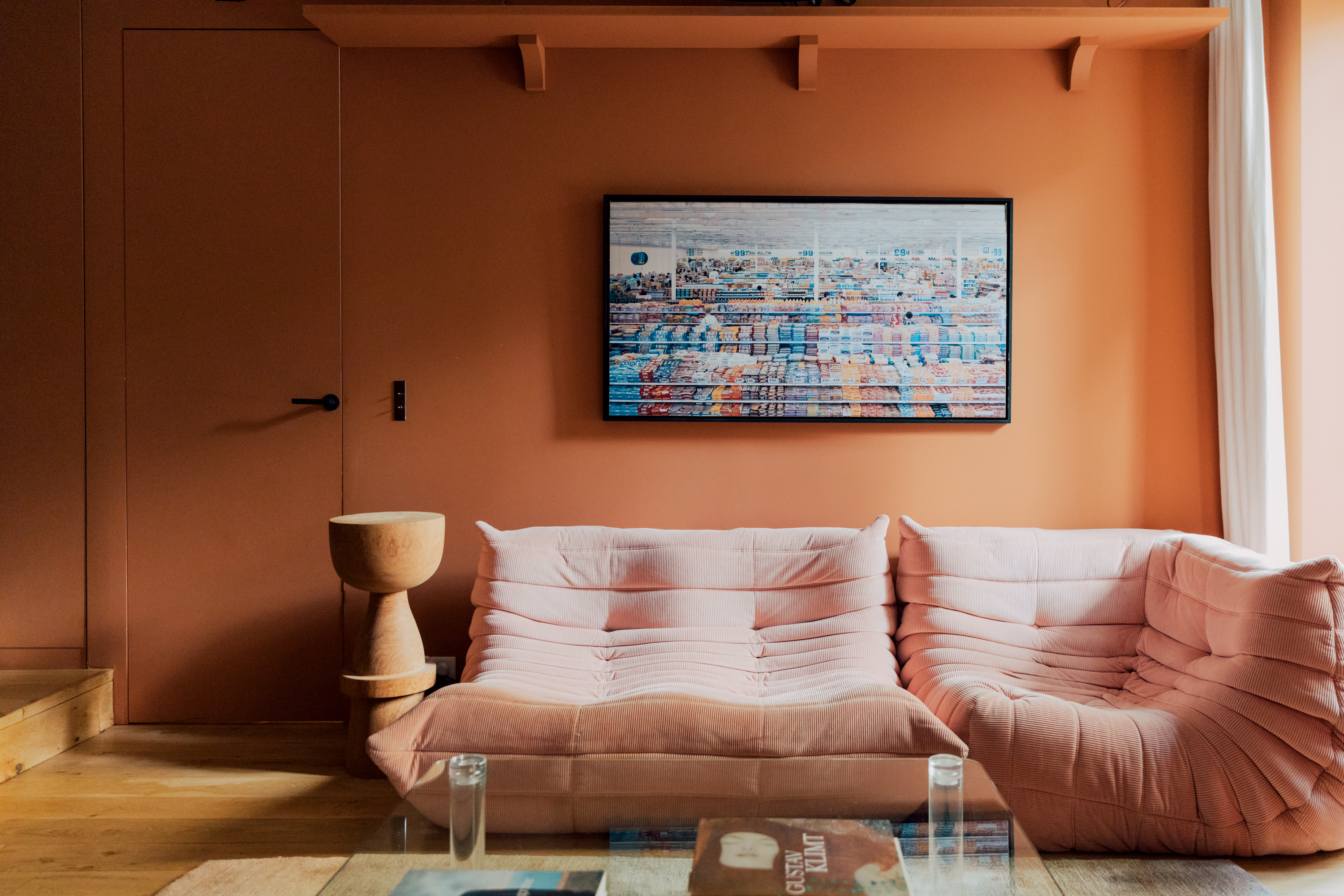
The Togo sofa by Ligne Roset is perhaps one of the most sought-after pieces in the history of furniture design. We'd take a guess and say that if you were to know only the name of one designer sofa, it would be this one.
Its unique appearance, meticulously handcrafted construction, along with wide fabric and color offerings, are all part of its natural allure. It has the feeling of a piece of furniture that has casual allure — less stuffy and formal than the traditional couch — yet, belying its laissez-faire appeal, it's a piece of furniture that's an incredible work of engineering. It is, undoubtedly, one of the best sofas on the market.
Launched in 1973, it's fair to say it wasn't instantly popular; the unusual 'tube of toothpaste'-inspired shape and understated casualness were a bold contrast to traditional sofas of the time. But the piece was unabashedly new, individual, and engaging. This eventually attracted even the cynics, and over the years, even though trends have changed, the Togo sofa remains one of the most iconic sofas around.
The History of the Togo Sofa
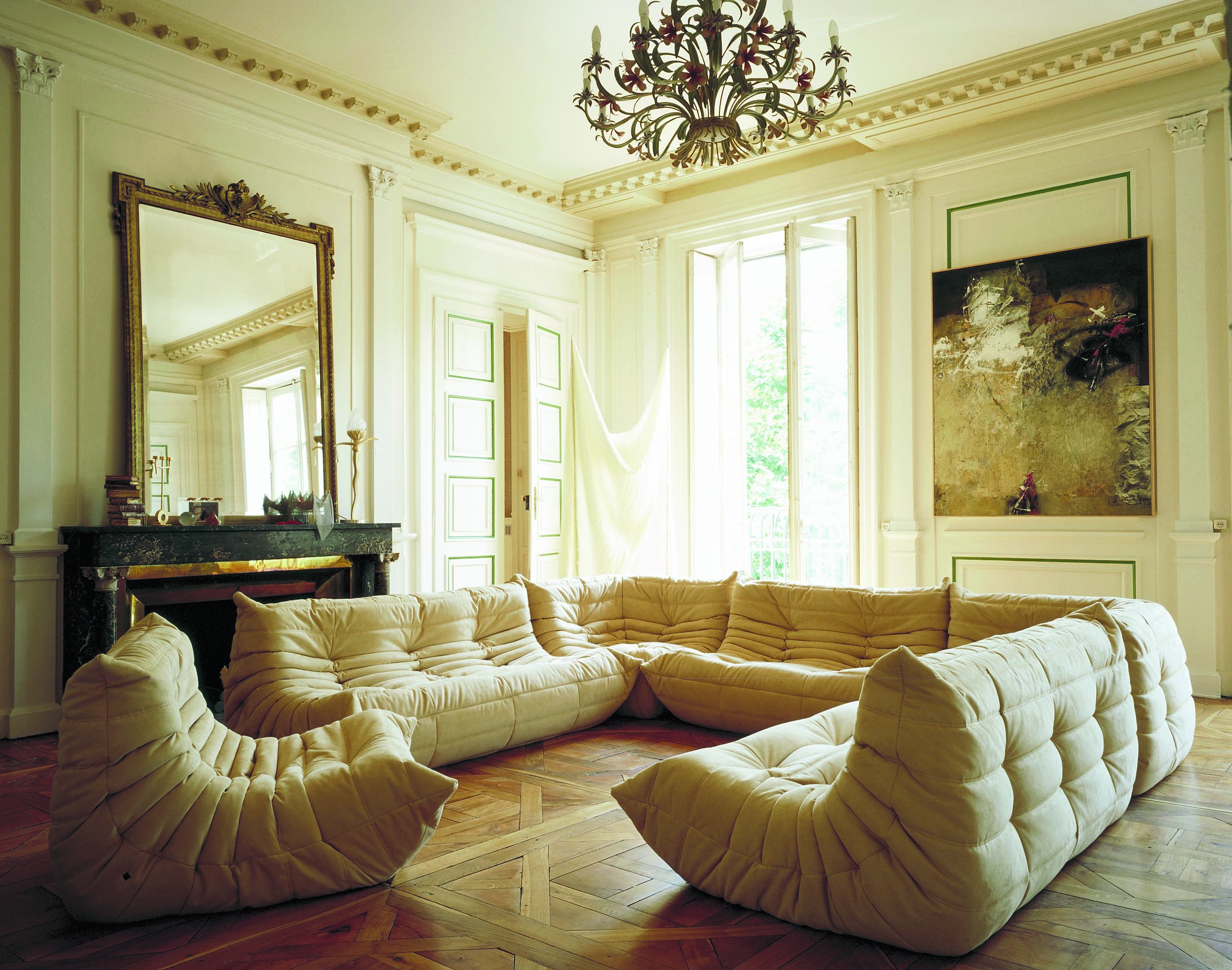
First presented at the Salon des Arts Ménagers at the Palais de la Défense, Paris in 1973, the Togo, designed by French designer Michel Ducaroy for Ligne Roset was reviewed as a crumpled, ‘newborn’ piece. However, towards the end of the fair, the organizers termed the piece as “innovative and democratic”, as it was different, well-priced, and crafted in high-quality materials.
As time went on, however, the appeal of this sofa trend grew — and some 50 years later, it's a design that's still used in some of the world's best homes. The 1970s produced many of the most iconic sofa designs that have become the "it couches" of today, and the Togo is one of the most celebrated. But why did it become such a star of the design world?
'The adaptability of Togo is a testament to the enduring appeal of the design, which remains relevant and stylish no matter the setting,' says architect Agi Kuczynska, from Takk Studio.
1. It is versatile

Much of the time, you'll see the Togo sofa as an individual piece, so it's easy to forget it's actually a living room sectional. The ability to be anything from a tiny loveseat to a sprawling conversation pit means it's a design that can suit almost any type of room.
The Livingetc newsletters are your inside source for what’s shaping interiors now - and what’s next. Discover trend forecasts, smart style ideas, and curated shopping inspiration that brings design to life. Subscribe today and stay ahead of the curve.
'One of the most remarkable qualities of the Togo sofa is its versatility, as it can be used as a standalone lounge chair, or arranged as a set to create a cohesive seating area,' Agi explains.
If that wasn't enough, in 2007 the brand also launched the Mini-Togo, a smaller-size version of the original designed for children.
2. It can alter the room's dimensions
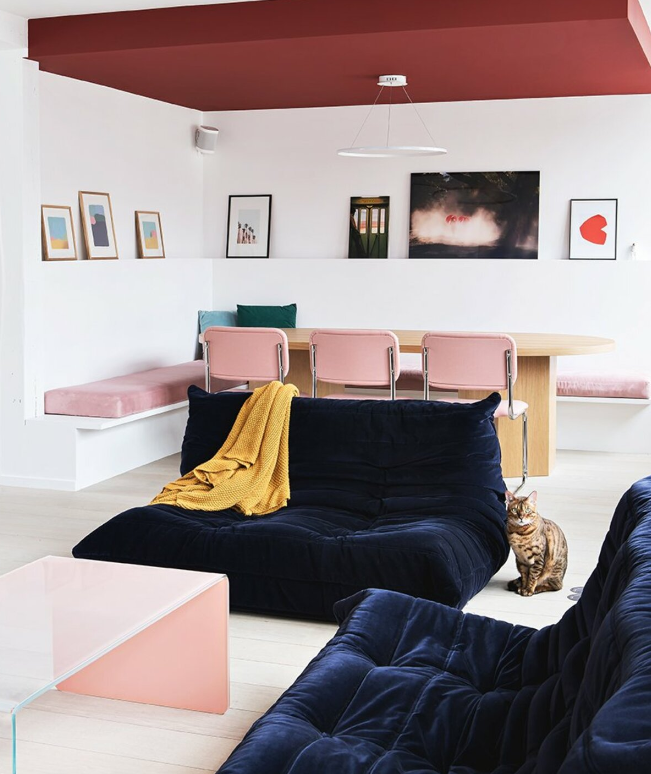
The Togo sofa is a low-slung piece of furniture — a design many would describe as a floor couch. This is part of its iconic aesthetic, but also brings a different dimension to the design of certain spaces.
'We used the Togo sofa in this room to enhance the room's volume,' says Ophélie Doria, founder of Space Factory. 'Since this home didn't have a high ceiling, we decided to go in for a low couch as that created an illusion of more height. Apart from that, it's also an interesting piece as it creates instant visual comfort when you enter the room.'
'We chose a vintage Togo for this room and upholstered it in a blue velvet fabric,' Ophélie adds. 'We chose this very graphic color to make it the star of the living room color scheme.'
3. It's so customizable
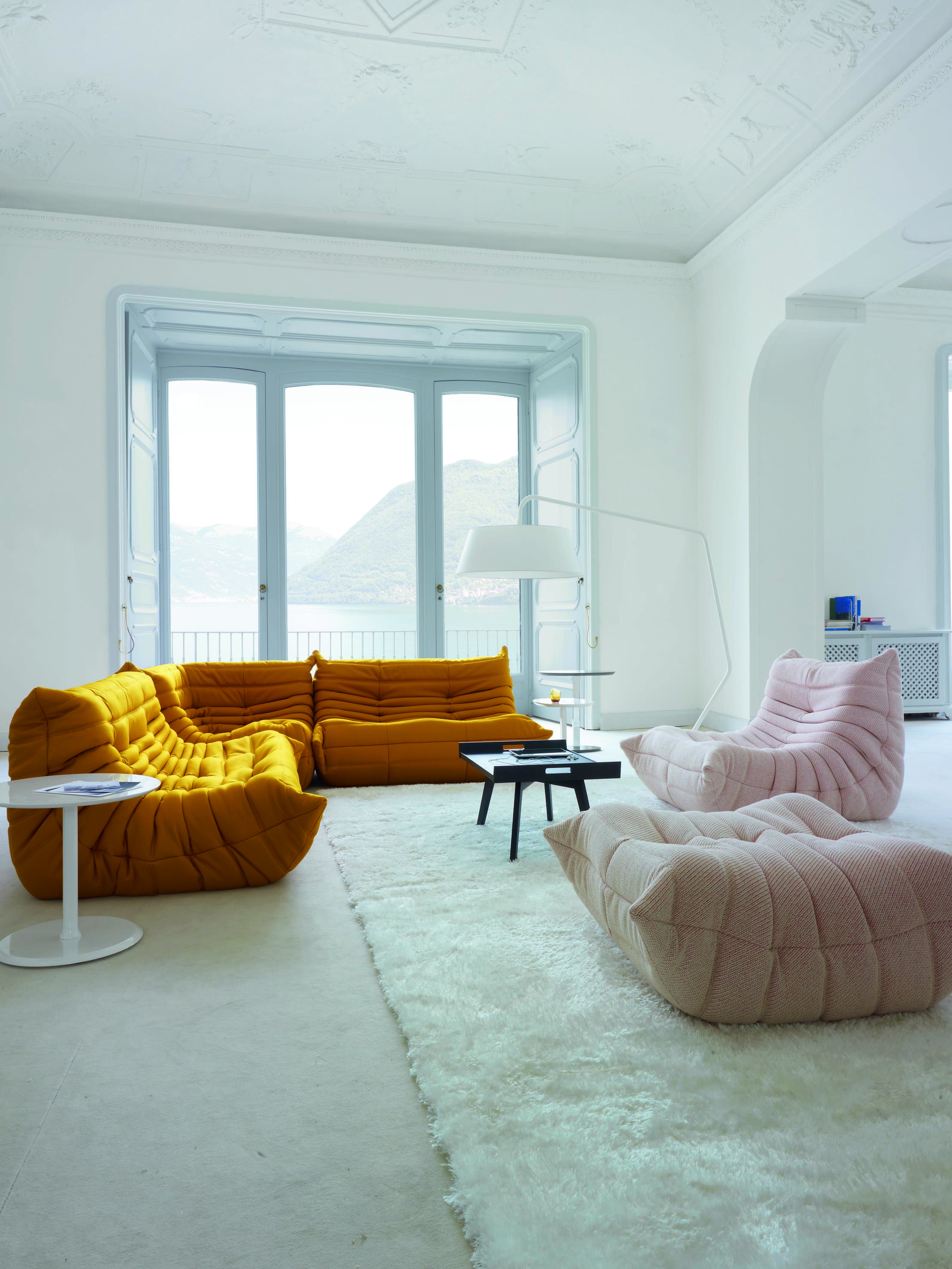
There's a certain vibe that the Togo sofa brings to a room, but this can be shifted to a degree with the right choice of material. It's a couch that we've seen in almost every type of fabric, and it's interesting to see how these choices draws the couch into a different style direction.
'The Togo sofa is a superb choice for those seeking a more refined, sophisticated look in their interiors,' Agi adds. 'The option of a sleek leather finish only adds to its timeless appeal, making it a perfect fit for a wide range of interior styles, from modern and minimalist to more classic and traditional.'
More recently, the Atom fabric with colors of birch, labradorite, and confetti was launched; a vibrant and experimental bouclé fabric with no visible repeat. This sofa is available in a limited edition of 878 pieces worldwide and is inspired by expressionist paintings.
The La Toile du Peintre by Pierre Frey is adorned with a contemporary tapestry with a large graphic pattern and vibrant colors that reinterpret a work by painter Heather Chontos. The choices are many and each piece is representative of timeless style and high appeal, perfect for an elegant living room.
4. It captures the 70s trend

The 70s remains one of the most influential periods in modern interior design, for sofas like the Togo, Camaleonda and Arflex's Marenco Sofa alone. The ability of this living room sofa to capture that easy-going, free-spirited quality is undoubtedly part of the appeal of the couch, and designers like Paris-based studio Hauvette Madani choose the Togo to bring this conversational quality to their spaces.
'In this project, we choose this sofa as a seat close to the floor, to create a cozy and welcoming 70s vibe,' says Lucas Madani, co-founder of HAUVETTE & MADANI. 'This shape is the perfect illustration of softness and can be married to every single modern house.'
What's the most popular Togo sofa colors?
Currently, the Alcantara Curry, Alcantara Chic Grey, Alcantara Orange, and Alcantara Camel are amongst the most popular Togo sofa color trends.
Alternative floor sofas for easy-going appeal

Aditi Sharma Maheshwari started her career at The Address (The Times of India), a tabloid on interiors and art. She wrote profiles of Indian artists, designers, and architects, and covered inspiring houses and commercial properties. After four years, she moved to ELLE DECOR as a senior features writer, where she contributed to the magazine and website, and also worked alongside the events team on India Design ID — the brand’s 10-day, annual design show. She wrote across topics: from designer interviews, and house tours, to new product launches, shopping pages, and reviews. After three years, she was hired as the senior editor at Houzz. The website content focused on practical advice on decorating the home and making design feel more approachable. She created fresh series on budget buys, design hacks, and DIYs, all backed with expert advice. Equipped with sizable knowledge of the industry and with a good network, she moved to Architectural Digest (Conde Nast) as the digital editor. The publication's focus was on high-end design, and her content highlighted A-listers, starchitects, and high-concept products, all customized for an audience that loves and invests in luxury. After a two-year stint, she moved to the UK and was hired at Livingetc as a design editor. She now freelances for a variety of interiors publications.
